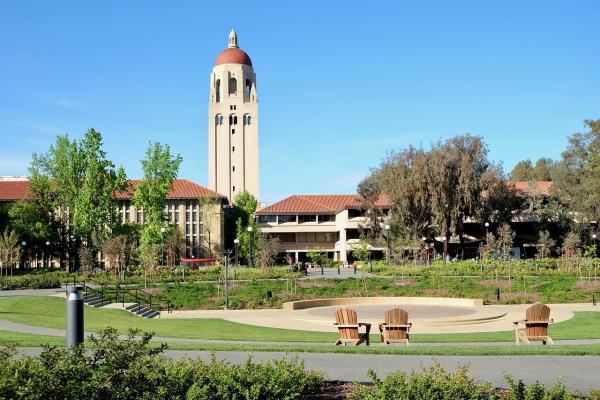Stanford University, which consistently ranks among the top U.S. colleges and universities, is one of the great research institutions in the world. But it also harbors a profound paradox — superb science in academic departments but often uncritically embracing trendy notions that contradict its well-earned reputation as a cutting-edge, science-grounded institution.
Hardly a month passes without news of a genuinely significant breakthrough in some field of science or technology. One week it might be the discovery of an unorthodox arrangement of wind turbines that increases energy output; the next, a new healing and antibiotic compound from scorpion venom or the application of artificial intelligence to enable people who are paralyzed to communicate by text.
But a few Stanford professors have not distinguished themselves well during the COVID-19 pandemic. Biophysicist and Nobel Laureate (Chemistry) Michael Levitt kept insisting during the Spring of 2020 that the pandemic would end by July of that year. He derided policies endorsed by the vast majority of epidemiologists as “politically correct.” Medical school professor Jay Bhattacharya has been a vocal, irresponsible proponent of “let it rip” pandemic policies throughout, has denied the effectiveness of masks, and has called the importance of vaccines “oversold.”
Now it appears that Stanford’s reputation is about to take another hit. Several scientific articles coauthored by its president, neuroscientist Marc Tessier-Lavigne, in prestigious journals are being reviewed for possible professional misconduct – namely, “photoshopped” images and improperly manipulated data. And then there is the Orwellian "Elimination of Harmful Language Initiative," which Stanford's political correctness mavens published last year.
Aside from the COVID-related shortcomings, the university president’s vicissitudes, and the asinine display of political correctness, there are systematic, long-standing, anti-scientific tendencies at Stanford that receive little attention. Often, the university allows its relentless virtue signaling to overwhelm rationality and a commitment to science. That is not only unseemly but also compromises students’ education.
Consider “sustainable agriculture,” a vague, feel-good concept term that is widely, if uncritically, popular; after all, who doesn't want an ecologically healthier world?
Stanford is all in with the symbolism. It has created a website, "Sustainable Stanford," where it extols the university as a "living laboratory for environmental action" focused on food and farming. The university even maintains the O'Donohue Family Stanford Educational Farm "for hands-on learning in sustainable agriculture," where students, staff, and faculty grow organic produce. And one of the university's top initiatives is to "support a sustainable food system through its purchasing practices and menu options." How does Stanford do that? It buys and serves organic foods whenever possible, of course.
What is so striking about these initiatives is the disconnect between Stanford's heavily promoted good intentions and the fast-evolving science surrounding sustainability. Universities are supposed to be where faculty and students seek hard truths, a respite from the mob of misguided, feel-good populism, but that is becoming less attainable all the time. In fact, when it comes to the issue of agricultural sustainability, Stanford lives in an unreal "green" fantasy.
What could be more important to sustainability than climate change? Yet, from a climate change perspective — which is front and center at Stanford — innumerable studies show organic farming is actually a laggard compared to conventional agriculture. Its yield lag tops 30%; tilling the soil (which is not required with farming using herbicides to control weeds) results in huge releases of CO2 (5% of the U.S. total); and methane gas release from livestock, which is used to generate fertilizer for organic farming, is the single biggest agricultural contributor to greenhouse gases.
While Stanford wallows in sustainability wokeness, M.I.T. (my undergraduate alma mater) gets it right. A 2019 article in M.I.T.'s Technology Review magazine, headlined "Sorry, organic farming is actually worse for climate change," details the myriad ways organic farming is a sustainability red herring. The article summed up extensive research on this issue, including a now-iconic U.K. study that showed organic farming, if widely instituted in England, would lead to increased food imports, clear-cutting of rainforests, and an overall increase in greenhouse-gas emissions of 21%.
But Stanford students are not exposed to any of that on the Sustainable Stanford website or at the O'Donohue sustainable farm. Nor are there informed scientific discussions at the dormitories' organic farms that use boutique “agroecological” farming practices (vide infra). That approach to farming might be gratifying for smug students and farm-rich countries like the United States, but it would devastate developing countries if the Stanford sustainability model were to become the global norm.
Stanford embraces a view of agricultural sustainability that came into fashion in the 1980s and 1990s, was flawed then, and is even more obviously so now. The university is all about "science" for academic research, but when it comes to digging below the surface and challenging their students to think outside the box, political correctness reigns—more about the university’s encouragement of anti-scientific views and practices in Part 2 of this series.
Note: This article is based on an earlier version published by the Genetic Literacy Project in July 2021.




